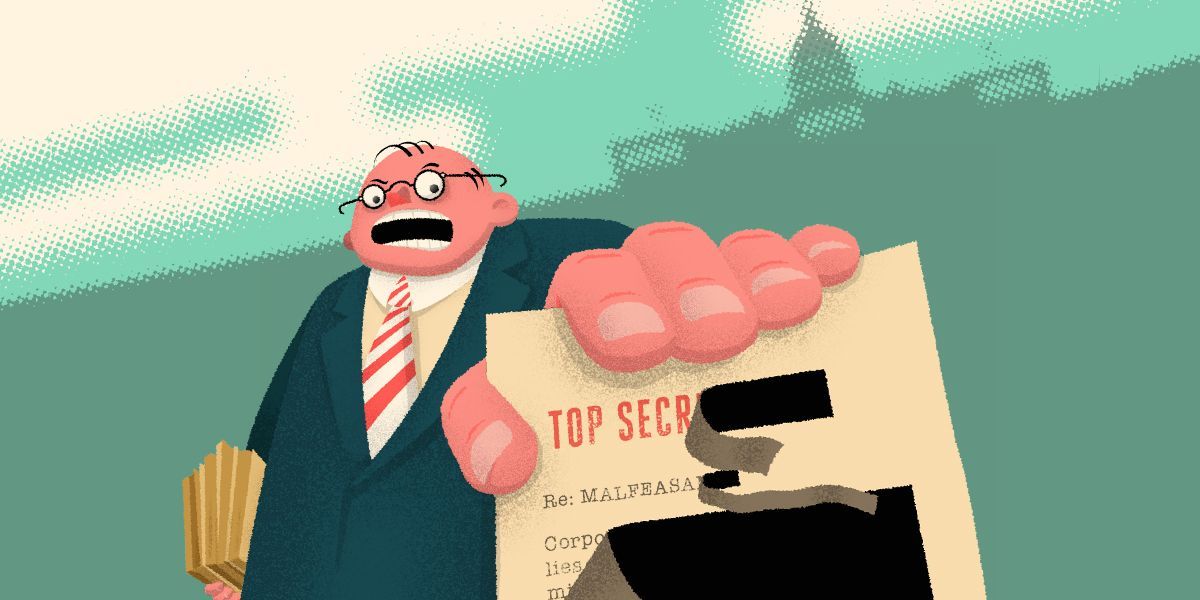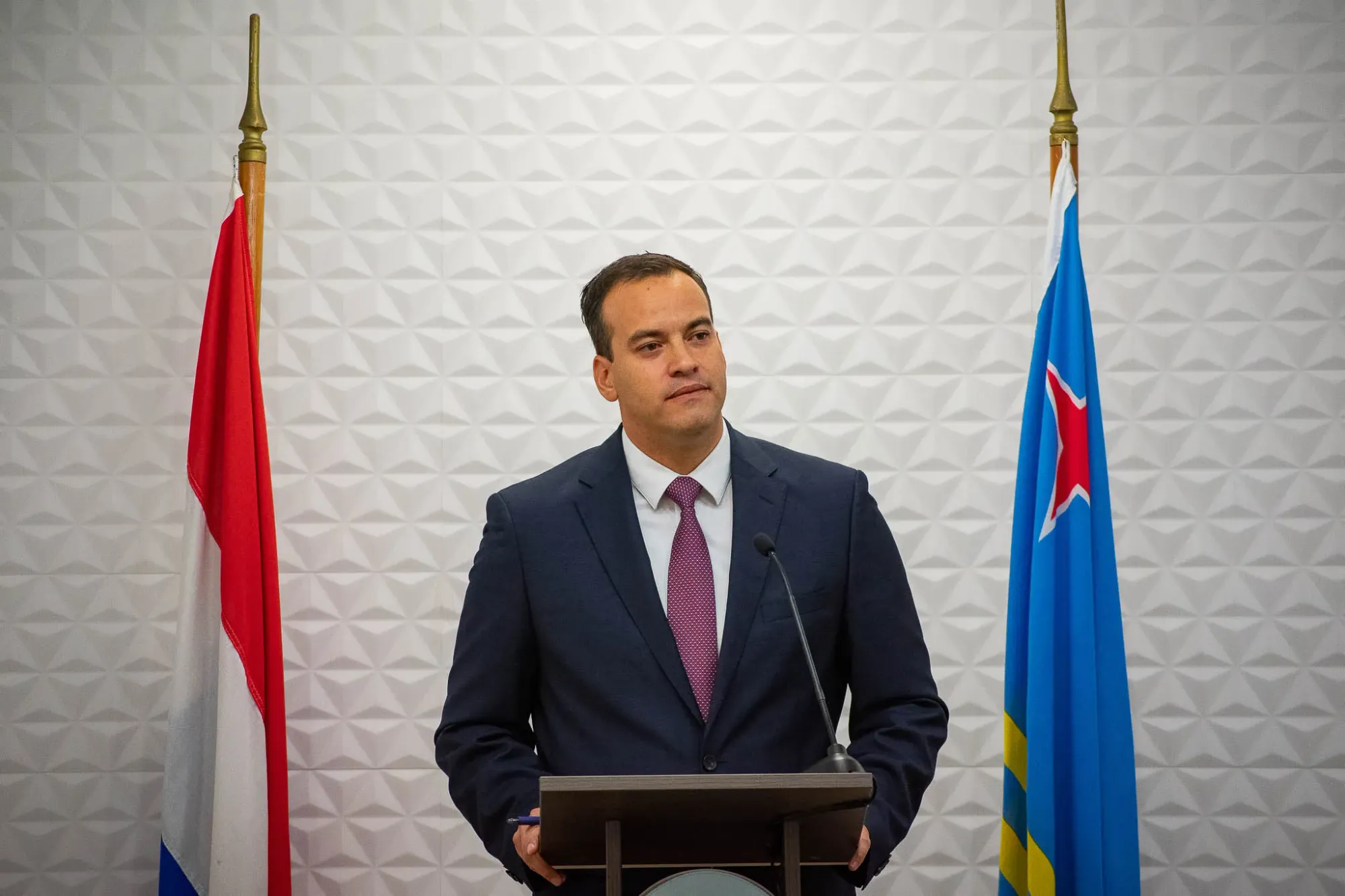Aruba & Curaçao governments fight to deny transparency rights
While tourists hide in the shade after sunbathing, are 🇦🇼 & 🇨🇼 governments using 'Sunshine laws' to hide documents from the Caribbean sun?

Aruba & Curaçao are well-known tourist destinations where millions of tourists visit every year to bask in the sun, sand and sea. While tourists hide in the shade after sunbathing, are governments using 'Sunshine laws' to keep documents from ever being exposed to the famous Caribbean sun?
I've done several freedom of information requests in Aruba, and recently also some in Curaçao, and from my experience it's clear that both governments are ridiculously Kafkaesque when it comes to transparency. That's why I've decided to nominate ministers from both islands for The Foilies 2023, which is a campaign from two US-based organizations, the Electronic Frontier Foundation and MuckRock, to basically embarrass public institutions that don't respect the right to information. In their words, it's to 'highlight what not to do when you work for the public'.
Some context: Transparency laws in Aruba & Curaçao
Aruba and Curaçao are autonomous countries within the Kingdom of the Netherlands, which basically means both islands have their own laws and self-govern, with a few policy exceptions left for regulation from the Netherlands.
Just like many other countries, both Aruba & Curaçao have Freedom of Information laws. In both cases it's called the Landsverordening openbaarheid van bestuur, largely a copy-paste operation of the Dutch Wet openbaarheid van bestuur. Roughly translated, you could call them the National Ordinance Open Government in English. These laws are elaborations on the constitutions of Aruba (article V.19) & Curaçao (article 91), which state that the government must be transparent in executing its tasks.
Because of these laws, anyone has the right to see how decisions are made and how they are executed. In practice, however, that right is barely recognized by the government and not used very often by journalists or citizens, probably because of unfamiliarity that it even exists.
The 'Top-Secret Unofficial Media Legislation' Award for Geoffrey Wever, Minister of Communication of Aruba

Who is Geoffrey Wever?
Geoffrey Wever is a lawyer that used to teach constitutional law at the University of Aruba, who became minister of Economic Affairs, Communication and Sustainable Development after the 2021 election for the up-and-coming party RAIZ. They formed a coalition with the MEP party, after the previous coalition between the MEP, POR and RED parties fell apart in 2017.
Is Wever's party RAIZ serious about transparency?
At first, I was excited to see how the new innovative party RAIZ would act once they got in government, especially considering transparency is one of the points they champion (it's the first point in the coalition agreement between them and the MEP party).
It's clear they are still the ones putting some focus on this, since it's their other minister and leader, Ursell Arends which is busy preparing a pilot for more active transparency, together with RAIZ-candidate and legislative lawyer Carlos Guiamo. MEP on the other hand is pretty quiet on this subject. Wever himself seems to not be so cooperative when it comes to transparency, at least in my experience, as will become apparent if you read on.
What's the relationship between the press and the government like on small islands such as Aruba & Curaçao?
The governments of Aruba & Curaçao don't have the best relationship with the press. Because the islands are small, and everyone kind of knows each other, it's common for journalists to be personally called out by ministers who aren't happy with critical news coverage.
One of the many instances of tensions between government and press is the government boycott of Aruban medium 24ora.com. Several ministers blocked any journalists of the medium from attending press conferences after, according to prime minister Evelyn Wever-Croes and minister Glenbert Croes (which are cousins), 24ora.com would 'slander' their family members. The government, however, never filed any charges.
After the Inter American Press Association (IAPA) critiqued the Aruban government for restricting press freedom in a resolution in its bi-yearly meeting as a consequence of its feud with 24ora.com, Aruban ministers were angry at the bad press of them being bad to the press.
When this resolution came out in april 2022, journalist 'Tito' Lacle seems to have interpreted this as a condemnation of the lack of transparency, and published that the IAPA resolution called for an end to the culture of secrecy within the government.
The resolution seems to have nothing to do with freedom of information,[1] but this did prompt a response from minister of Communication Geoffrey Wever, who basically said, but we do have a transparency law! Although he admitted in the same article that requests for information aren't honored so quickly.
Since I already had a pretty bad experience with freedom of information requests in Aruba's previous government[2], I wanted to see how a minister that was selling the value of the Aruban transparency law would handle a request.
After hearing Wever speak on a podcast about a law his department is working on to regulate the media and to set up a media council, which was also mentioned in the IAPA resolution, I thought to request the text of the draft law. He mentioned on a podcast that the previous minister had made draft legislation, and that he is working on a new one, so I requested both.
I thought this would be a simple request, since there is no sensitive information in draft legislation that hasn't been passed by parliament. It's just some old law that didn't make it, the poor thing.
Oh boy, was I wrong. I made the request on the 23rd of June 2022 and got the old draft on the 20th of December 2022. That's 6 months of waiting for a simple PDF file of some old legislation which isn't even controversial to make public.
Initially Wever reacted saying that my request isn't valid because I didn't file my request physically, so he gave me a chance to do so.
I pointed out in an objection letter that the law authorizes anyone to make a request, even if in my case, I don't live in Aruba anymore. I find it wild that a lawyer and constitutional scholar can't read article 2 of the law correctly. Wever seems to be pretending that the ministers have not been working and meeting with tablets since Covid.

I guess to save face, Wever said in his reaction that it's still not possible to file requests digitally, but he'll make an exception for me.
That's quite sneaky, since it implies that he still believes the rule he just made up should be applied when I have clearly shown he's wrong. It gets even more ironic when you realize that all his decisions on my requests and reactions to my objections were sent via e-mail.
After that whole argument about just being able to file the request (which I'm still litigating), Wever rejected my request, saying that draft legislation does not fall under the scope of the National Ordinance Open Government, because it's not official. Even though he says himself that these types of documents are not exempt from being made public. He then makes up another rule about how if it's unofficial (since the law is a draft), it can't be made public.
In my objection letter, I pointed out that there is no exception for draft legislation, (whether official or not) in the Lob (draft laws are just documents), and that there is case law (from 2016!) from the Joint Court of Justice of the six Dutch Caribbean islands which already made it clear that this rejection has no grounds.
In the end I did kinda get what I requested (the current version of the draft was not given), but why was all that arguing necessary when in the end the request had to be honored? Why look for reasons to reject something so simple?
Can you imagine what it would be like if you requested actual sensitive documents?
I double-checked with the vice-president of the press freedom committee of IAPA Marko Espinoza (who by the way works for 24ora.com), and he confirmed that the resolution had nothing to do with freedom of information. The text of the IAPA publication also doesn't talk about it. ↩︎
The minister of justice just ignored me for a year and a half while I forced him to answer through the courts, and only after a financial penalty was imposed did he move to give a simple 1-page rejection. By then I was too exhausted to continue fighting. ↩︎
The 'Foreign Requesters Not Welcome' Award for the Minister of Justice of Curaçao, Shalten Hato

That last question is rhetorical, because one of the requests I filed was for the meeting notes from 2018 until 2021 of the bi-yearly meeting between ministers of justice in the Dutch kingdom, where they discuss justice policy and cooperation. (Justitieel Vierlandenoverleg, JVO). It seems these documents are very sensitive, because the minister hired a lawyer to fight me in court so that the documents aren't made public.
Initially, Hato rejected my request because making the documents public could, according to him, harm national security, and because it's information for internal debate. The second one, I could maybe somewhat understand, but the first? How exactly is making some meeting notes public going to harm national security?
Because Hato's decision was so short and badly motivated, I went directly to court to throw the decision out. As a reaction, Hato hires a lawyer that gets some facts wrong in a 10-page statement of defense. The lawyer tries to say that I received the decisions earlier than I actually did, so that my appeal would be counted as filed too late.
Just like with Wever, Hato also misinterprets the Lob so that he doesn't have to make the documents I requested public by completely shutting me out as a requester. He says I have no right to request information in Curaçao, even though the law says otherwise.
What's even funnier is that Hato's lawyer says I should be directing my request at the minister of justice of the Netherlands, which is where I live, and not in Curaçao. So I should stop pestering them and go look for what I want elsewhere.
And as a last resort, the lawyer says that the minister doesn't have the documents. But how can that be, if he decided that the documents would be denied, not that he doesn't have them? 🤔
Where to from here?
The next time you're on your way to the wonderful tourist destinations of Aruba & Curaçao, take a moment to think about how many documents the government is keeping in the dark while you bask in the sun on the white sandy beaches.
And to the ministers and civil servants that might read this, please try to change the culture of secrecy in your governments. Although the previously mentioned IAPA resolution had nothing to do with transparency, Tito Lacle was right to call for the end of the culture of secrecy, which definitely exists.
Firstly, because legally, you're in the wrong.
Secondly, because you're wasting resources on protecting yourself from public scrutiny (for example by hiring a lawyer to fight against transparency and not for it), when you should be open to accountability to the public. That's good governance.
The public already thinks the government is keeping many secrets and are self-interested pricks, so why not work to change that?
